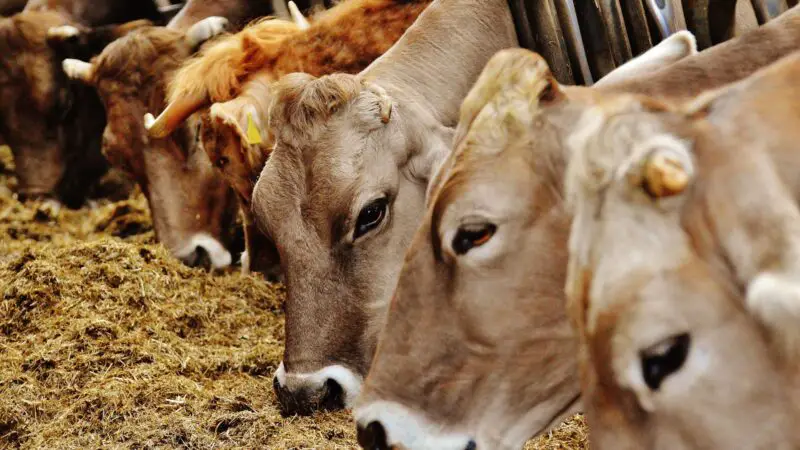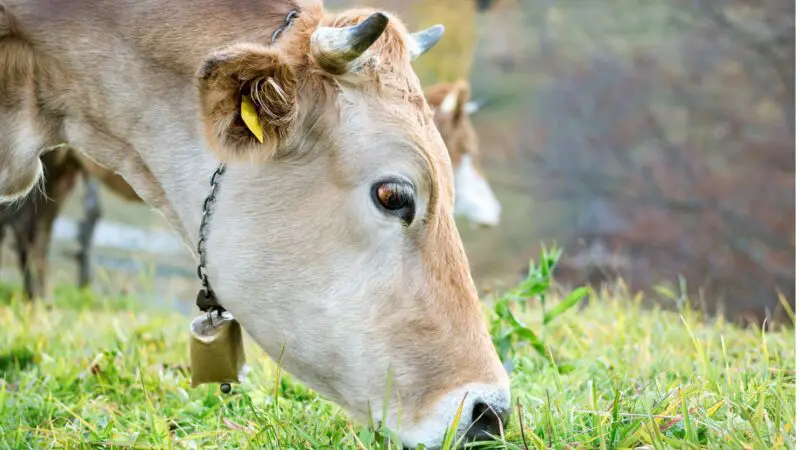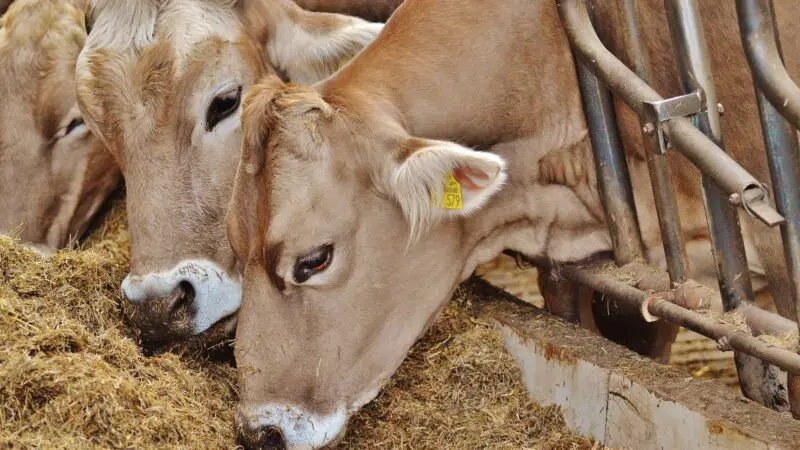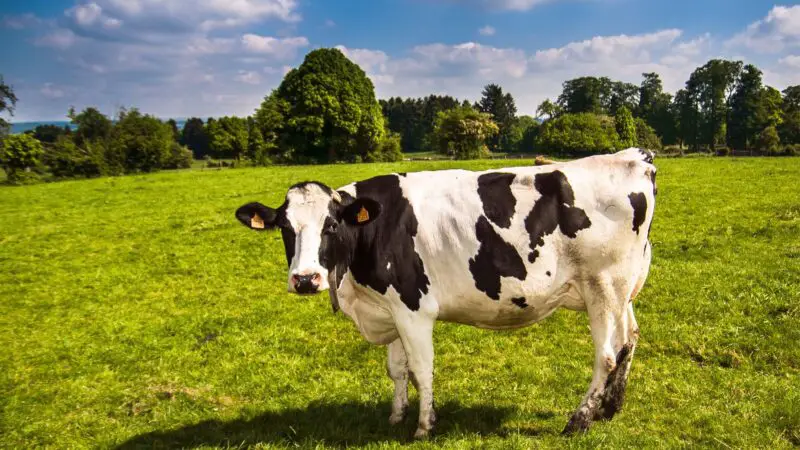As a cattle owner or aspiring farmer, it’s essential to understand the importance of providing a proper diet, the right food, and the necessary supplements for your cows. A well-balanced diet can lead to healthier cows, better quality milk, and more substantial meat production.
The proper diet, food, and supplements for cows are crucial for their health, growth, and productivity. A well-balanced diet ensures healthier cows, improved milk quality, and higher meat production.
By delving deeper into this guide, you’ll learn more about cows’ dietary needs, the best food options, and essential supplements. We’ll cover daily health care, nutritional recommendations, common health challenges, and social aspects of raising cows.

What Do Cows Need?
Cows require a balanced diet of energy, protein, vitamins, and minerals to thrive. They need access to clean water, comfortable living conditions, and proper veterinary care. Additionally, cows are social animals, so they benefit from being around other cows and having plenty of space to roam and graze.
Daily Health Care for Cows
Daily health care for cows includes monitoring their diet, maintaining a clean environment, and checking for signs of illness or injury. Regular veterinary visits are essential to ensure your cows receive proper vaccinations and timely treatment if needed. Observing your cows’ behavior and body condition can help you identify potential health issues before they become severe.
Food and Nutritional Recommendations for Cows
What is the best diet for cattle?
The ideal diet for cattle depends on their age, breed, and purpose (dairy or beef). Generally, a combination of forages, grains, and supplements will provide a balanced diet.
What are the most important nutrients to feed beef cattle?
The most critical nutrients for beef cattle are energy, protein, vitamins, and minerals. A combination of forages, grains, and supplements will ensure their nutritional needs are met.
What protein do cows need?
Cows require proteins to support growth, reproduction, and milk production. High-quality forages and protein supplements, such as soybean meal or canola meal, can provide the necessary proteins.
What grain is best for beef cattle?
Corn is a popular grain for beef cattle due to its high energy content. However, barley, oats, and wheat can also be suitable options, depending on availability and cost.
What Grass Can Cows Eat?

Cows can graze on a variety of grasses, including fescue, ryegrass, bermudagrass, and timothy. A diverse pasture mix will provide an array of nutrients and maintain better pasture health.
What Fruits and Vegetables Can Cows Eat?
Cows can eat various fruits and vegetables, such as apples, pears, pumpkins, and carrots. However, these should be fed in moderation as treats and not as a primary food source.
Related: Can Cows Eat Bananas and Apples? List of Fruits Cows Can Eat and Should Not Eat
What Human Food Can Cows Eat?
Cows can consume some human foods like bread, cereals, and fruit and vegetable scraps. These should be fed sparingly and never replace a well-balanced diet.
Do cows need a pasture?
Yes, cows need a pasture for grazing, exercise, and socialization. Providing a pasture can improve their overall health and well-being.
Social Recommendations for Cows
Cows are herd animals and benefit from living with other cows. A group setting can improve their overall happiness, reduce stress, and contribute to better health.
Common Cow Health Challenges
Common health challenges for cows include mastitis, lameness, respiratory infections, and gastrointestinal issues. Regular health care and a balanced diet can help prevent these issues.
What Should You Not Feed Cows?
Avoid feeding cows chocolate, onions, potatoes, avocado, moldy food, or excessive amounts of grain, as these can be harmful or toxic to them.

Related questions
Is soybean meal good for cattle?
Yes, soybean meal is an excellent protein source for cattle. It’s highly digestible and provides essential amino acids.
Can you feed cattle too much protein?
Yes, excessive protein can lead to health issues, such as ammonia toxicity, and negatively impact the environment due to increased nitrogen excretion. Balance protein intake with energy sources in their diet.
What is the cheapest way to feed cattle?
Feeding cattle on pasture or using locally available forage and grains can be the most cost-effective approach. Remember, though, a well-balanced diet is crucial for their health and productivity.
Can cows eat too much alfalfa?
Yes, excessive alfalfa consumption can lead to bloat, which is a potentially life-threatening condition. Balance alfalfa intake with other forages and grains.
Will cows stop eating when they are full?
Cows may not stop eating when full, especially if high-quality feed is available. Monitor their intake and adjust their diet accordingly to prevent overeating.
How much grain should a cow eat per day?
The amount of grain a cow should eat per day depends on factors like age, weight, and purpose. Consult a veterinarian or nutritionist for specific recommendations tailored to your cows.
How many times a day should you feed cows?
Cows should ideally be fed multiple times a day to ensure a consistent intake of nutrients. This can range from 2-4 times daily, depending on your management system and the cows’ needs.
How many bales of hay does a cow need a day?
A cow typically consumes 2-3% of its body weight in dry matter per day. For a 1,200-pound cow, this equates to 24-36 pounds of hay. The exact amount may vary depending on the quality and type of hay.

Final Thoughts
Providing a proper diet, food, and supplements for your cows is crucial for their health and productivity. By understanding their nutritional needs, monitoring their daily health care, and offering a well-balanced diet, you’ll be well on your way to raising happy, healthy cows.
